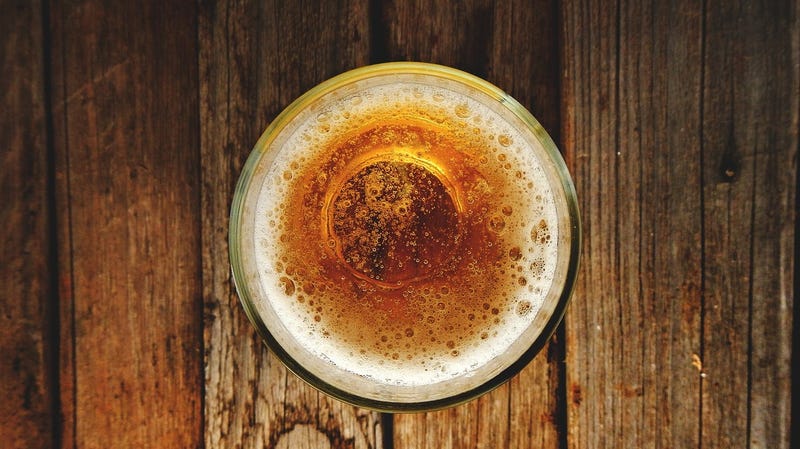 Image: Lernestorod (Pixabay)
Image: Lernestorod (Pixabay)
The National Institutes of Health (NIH) has abruptly halted its $100 million study meant to examine whether moderate drinking can be good for your heart. The decision, announced Friday, comes in the wake of a report commissioned by the federal agency that reaffirmed allegations first reported by the New York Times this March. It found that NIH officials and the study’s lead researcher solicited donations from the alcohol industry to fund the trial in violation of NIH policy, along with other possibly unethical behavior.
The trial, which began last year, was set to enroll nearly 8,000 healthy adults over the age of 50 across the world. Volunteers would have been randomly assigned to either become moderate drinkers (defined as having one daily drink of their choice) or to completely abstain from alcohol. Over the next 10 years, researchers at 16 study sites would record which group ended up having higher rates of cardiovascular disease and diabetes.
According to the NIH, the Moderate Alcohol and Cardiovascular Health trial (MACH) began recruiting volunteers in February, but by May, it had decided to suspend the trial, pending a review conducted by the NIH’s Advisory Committee to the Director (ACD). By then, 108 volunteers had already been enrolled.
The ACD report found several ethical lapses on the part of officials within the NIH’s National Institute of Alcohol Abuse and Alcoholism (NIAAA) and the study’s lead author, Kenneth Mukamal, a Harvard Medical School researcher who has long studied the effects of alcohol consumption. First and foremost, it found there was “early and frequent engagement among these parties” to persuade the alcohol lobby to support the project.
The New York Times reported that Mukamal and others gave presentations to industry representatives that strongly suggested their trial would find positive health benefits of moderate drinking, while at least one NIH official approached industry representatives afterward, pleading that the research couldn’t be done without them. Five of the largest alcohol companies in the world, including Anheuser-Busch, eventually donated more than $60 million to the trial via the Foundation for the National Institutes of Health, which coordinates the funding of research between the government and private partners.
The agency does not allow employees to solicit gift funding from industry sources, and the report found these officials failed to notify the Foundation of their earlier backdoor dealing. It also claims Mukamal (simply referred to the “principal investigator”) had an inside track to the planned trial that ensured he would gain funding over other scientists, thanks to “sustained interactions” between him and senior NIAAA officials in the study’s early planning stages.
“More or less, we were kept in the dark,” said Lawrence Tabak, the NIH’s principal deputy director, in a conference held this afternoon.
There were also alleged problems with the study design itself. The trial was too small, short-running, and imprecise to conclusively answer whether moderate drinking could be good for the heart, the report found. One of the study’s “serious shortcomings” was that it wouldn’t measure rates of heart failure between the two groups, a well-known health risk of alcohol use. (While there’s definitely some evidence that moderate drinking can be a boon to your heart, other recent research has pushed back against this idea.)
Citing the actions of Mukamal and NIAAA officials, as well as the likelihood that the MACH trial’s eventual results would forever be seen as tainted, the report recommended it should be canceled, a conclusion with which the NIH agreed.
“It’s of great concern [to the NIH] that resources have expended on something that ultimately we feel is so compromised that it would never lead to anything actionable, and we don’t take that lightly,” Tabak said. But by terminating the study, he added, it would prevent even more money from being wasted.
According to the NIH, about $4 million of the NIH’s own money had been spent on the trial, along with $11 million from private funding. The NIAAA will decide how to reallocate their funding, while the donated money will be returned to the alcohol companies, Tabak said. Anheuser-Busch, citing the controversy, had already pulled its $15 million donation from the study last week.
The report didn’t entirely validate recent criticisms of the NIH’s ties to the alcohol industry. It found that while the NIAAA has shifted some of its funding away from studying how advertising affects teens’ attitudes toward alcohol in recent years, overall funding into alcohol research, including underage drinking, has increased. And it didn’t find evidence that the agency’s research was guided by industry preferences. The NIAAA’s director, George Koob, was accused of telling two researchers who studied alcohol advertising on social media that he didn’t “fucking care!” about their NIH-funded research soon after he took the position in 2013.
“That may have been not the most measured statement,” Tabak admitted. “[But] it is not uncommon for institute leadership to evaluate emergent scientific opportunities and take advantage of it, and, of course, that sometimes requires prioritization of resources and so forth.”
The NIH has said it will take appropriate actions with the unnamed officials singled out in the report, but that it will not comment on personnel matters.
As for Mukamal, Tabak said he had sent him a letter during the NIH’s investigation, in which he outlined what he saw as the “value of the trial.” Mukamal did not respond to a request for comment from Gizmodo regarding the NIH’s decision today.
[NIH]